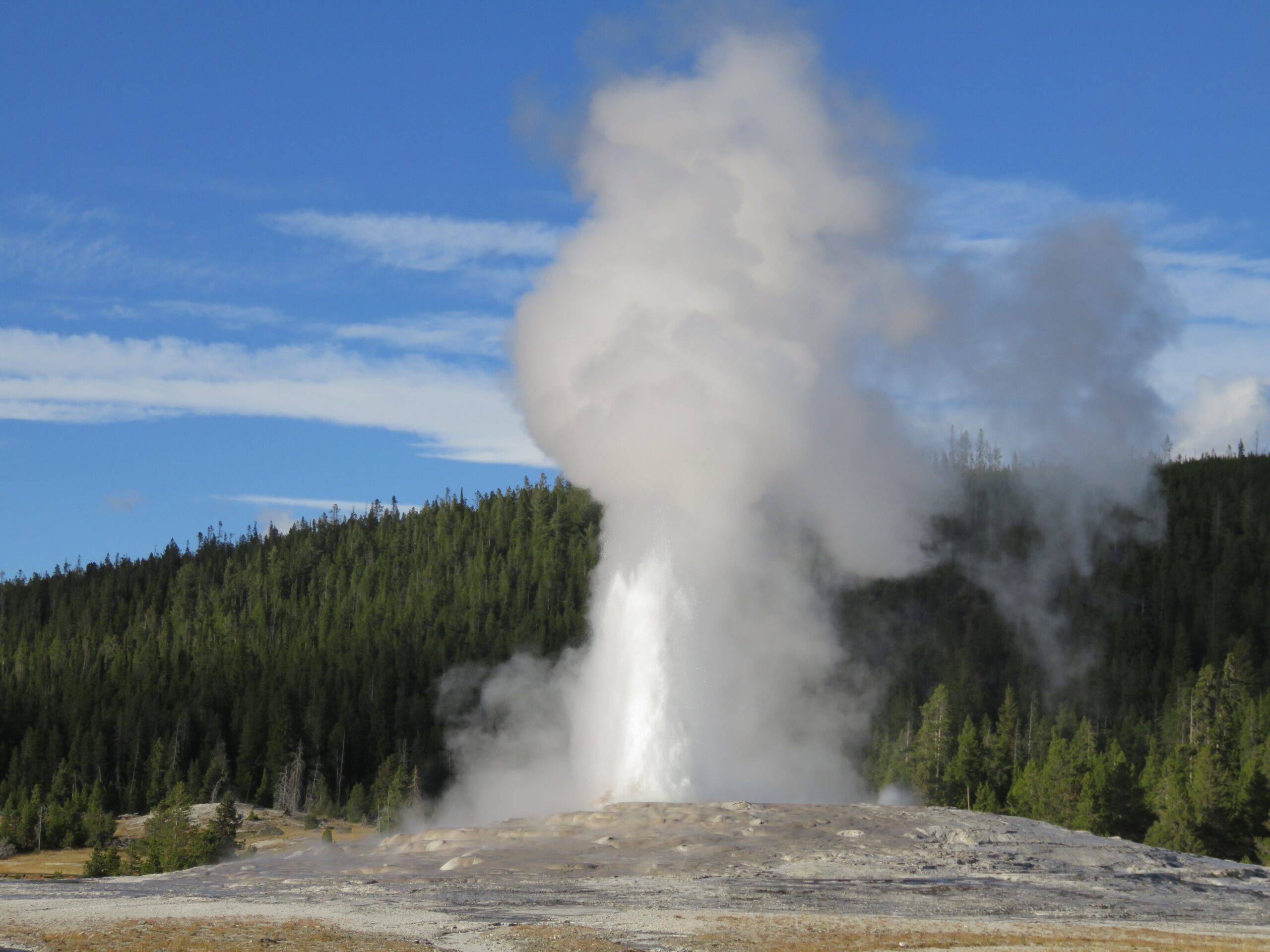This article originally appeared in the Los Angeles Times.
Yellowstone’s Old Faithful is a symbol of reliability. The geyser’s regular eruptions attract millions of visitors each year. But the funding from Congress to sustain the park is anything but reliable. Decades of neglect have created a backlog in Yellowstone of more than half a billion dollars in deferred maintenance projects. The total is nearly $12 billion for the entire National Park Service, four times the agency’s annual budget.
That may be about to change: Congress is poised to commit significant funding for the upkeep of America’s national parks. In recent weeks, bipartisan bills have been introduced to both chambers of Congress that would create a dedicated fund, consisting of up to $1.3 billion in federal onshore and offshore energy revenues each year, devoted to maintenance projects in national parks and other public lands.
The proposals have broad support from Democrats and Republicans in Congress as well as the Trump administration and, if approved, would represent what Sen. Lamar Alexander (R-Tenn.) has called “the most significant piece of legislation in support of the national parks in more than half a century.”
It’s shaping up to be a quiet but well-deserved conservation victory for an administration that has been routinely criticized for its environmental policies.
As visitors well know, a lack of maintenance funding has left many parks in rough shape. Potholed roads, rotted buildings and crumbling trails are a common sight. In Yosemite, sewer systems are in need of repair to prevent contamination of nearby streams. In Grand Canyon, an aging water pipeline bursts five to 30 times per year, costing roughly $25,000 per repair and prompting use restrictions. And in the Great Smokies, a popular campground is closed due to failing infrastructure and a deteriorating water system.
Mundane maintenance projects such as these are a low priority for politicians in Washington, D.C., regardless of the party in power. No one gets reelected for patching a leaky wastewater system or repairing failing culverts.
“It’s not very sexy to fix a sewer system or maintain a trail,” the late Rep. Ralph S. Regula (R-Ohio) once quipped as chairman of the Interior Department appropriations subcommittee. “You don’t get headlines for that.”
The data bear that out. Over the past decade, Congress has appropriated roughly $500 million each year to deferred maintenance projects in national parks—less than the $700 million the Park Service says it needs annually just to keep the backlog from growing.
Meanwhile, Congress has continued to establish new parks without additional funding. Since 2000, 35 new park units have been created, thus “thinning the blood” of the park system, as former Park Service Director James Ridenour once put it.
The legislation now before Congress has several virtues.
First, as a dedicated fund, it would not require annual appropriation from Congress, which has proven to be an unreliable and inadequate source of maintenance funding. Second, the fund could only be used for deferred maintenance, not for the acquisition of new federal lands. Third, unspent funds could be invested at the discretion of the Interior secretary, allowing park managers to balance short- and long-term maintenance needs. Fourth, private foundations and individuals could donate to the fund, meaning it could spur philanthropic partnerships to help preserve parks.
To truly break the backlog, more work remains. For one, while these efforts would help address deferred maintenance, reliable funds for ongoing maintenance are also needed to ensure that routine park projects, such as resealing roads or replacing roofs, don’t get added to the backlog in the future, ultimately at higher cost to taxpayers.
Nonetheless, if the proposals come to fruition, Congress may finally make real progress at maintaining, not simply expanding, America’s public lands.




